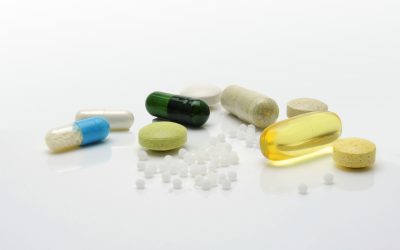The Biggest Oversight: Male Infertility
Not Just A Woman’s Problem
When talking about infertility, I’d wager a guess that most, of us, assume we’re talking about a woman. Infertility is largely seen as a woman’s problem; however, this could not be further from the truth. Male infertility accounts for 30% of couples struggling with infertility1. Further, a combination of male and female combined and unexplained infertility is diagnosed in 35% of couples facing infertility1. Yet, when it comes to seeking treatments to support and boost fertility, it’s mostly women who are putting themselves through all the appointments, diet changes, taking vitamins/supplements, acupuncture, etc. In fact, a large majority of the women we see have male partners who are a not involved in the process.
Even more alarming, is that many of these men have identified sub-optimal sperm health, yet it’s the female partner who is seeking help, many times when nothing was even identified with her. What gives?!? If you’re thinking about having a baby, you’ve been trying for a long time, or you’re starting to consider assisted reproductive technologies, the male side of the equation cannot be overlooked! Even when a semen analysis comes back as “normal”, that doesn’t mean that it is optimal. We know that sperm counts have drastically declined over the last several decades, so what is considered normal today, can still be quite below what is actually optimal. As the saying goes…”It takes two to tango”! So, men, you’re not off the hook! The health of your sperm is a major contributor to your chances of conception, so read on to find out more about what can be done to improve sperm health.
Why Does Male Infertility Happen?
There are many reasons why male infertility could be occurring. Typically they are broken down into the following categories:
- Sperm dysfunction (production, blockage, damage, antibodies)
- Sexual dysfunction
- Hormonal conditions
- Age-related infertility
- Other
Unfortunately for reasons unknown to us, sperm parameters have been on a steady decline for the last few decades2. This has contributed to an increased rate of male infertility2. A possible explanation includes increased exposure to xenoestrogens and other environmental toxins. For many of the categories listed above, science often needs to be involved for conception to occur.
That said, there are many modifiable, everyday factors that can hinder male fertility. Similar to us ladies, the same factors impact men’s fertility: age, diet, exercise, weight, lifestyle, and stress all play contributing roles. Luckily, there are some easy, every day changes men can make to help improve their fertility!
Simple Changes to Improve Male Infertility
Everyday Changes
- Stop smoking! Smoking can cause DNA fragmentation of sperm, decrease sperm parameters, and cause sexual dysfunction9.
- Same goes for recreational drugs – if you’re trying to conceive, it’s best to hold off.
- Limit alcohol intake. Excessive alcohol increases conversion of testosterone to estrogen. Lowered testosterone means lowered sperm production, lowered sex drive, increased infertility, and a host of many unwanted side effects8,9 !
- Do your best to avoid xenoestrogens and other environmental toxins. A major xenoestrogen known as BPA is found in many soft plastics. BPA is a known endocrine-disrupting chemical and is linked to diminished fertility in both men and women3. Opt for reusable glass water bottles and food containers. Never microwave your food in plastic Tupperware, avoid non-stick pans, and try your best to avoid receipt paper! To learn more about xenoestrogens and how to avoid them, click here.
- Avoid activities that increase scrotal temperature. Scrotal temperature needs to be slightly cooler than body temperature for proper sperm production to occur. This means avoid regular use of car seat warmers, hot tubs, hot baths, and cycling.
- Avoid the use of lubricants when having sex. Lubricants make it extremely difficult for sperm to reach their final destination and fertilize the egg. The same goes for saliva too!
- If you’re taking medication, ensure it does not impair fertility. Medications known to impact male fertility include SSRIs, 5-alpha reductase inhibitors (AKA finasteride, saw palmetto), anabolic steroids, alpha blockers (tamsulosin, doxazosin), antifungal medications, PDE5 inhibitors (Viagra, Cialis), and opiates. If you are taking one of these medications and are hoping to conceive, speak to your primary health care provider to learn more.
Diet, Exercise, Stress
- Try your best to eat whole foods, and follow an anti-inflammatory diet. Research has shown that a healthy diet is associated with better sperm quality in men4. For reference, check out our Optimal Fertility Diet here and here.
- Exercise is VERY important in maintaining good general health and boosting male fertility. The amount and types of exercise you engage in is no matter when it comes to fertility. Moderate physical activity appears to benefit sperm health the most5. Activities like weightlifting and outdoor sports7 are especially great for increasing sperm concentration. It’s important to note that high-level endurance sports may damage sperm DNA, concentration, and counts6. For more information on exercise and fertility click here.
- Engage in some stress-free, relaxing activities! Stress can lower sperm density and motility and can increase abnormal sperm morphology7, all of which are detrimental to fertility. Strategies to combat stress include yoga and meditation. If you would like to learn more about stress-relieving and relaxation strategies, click here.
- Weight plays a major role in infertility for both men and women. In men, increased abdominal fat causes increased conversion of testosterone to estrogen. As previously mentioned, lowered testosterone means lowered sperm production, lowered sex drive, and increased infertility. Aim for a body mass index of 19-25 for optimal fertility.
A Final Word on Male Infertility
Last but not least, remember that sperm takes approximately 3 months to be produced. That means that what you do today, next week and even next month will impact your sperm health and ability to conceive 3 months from now. It takes both egg and sperm to have a baby, so don’t overlook the male half of things when trying to conceive! If you would like to learn more about male infertility and what more you can do, I am here and happy to help!
With love and in health,
Priya
References
- https://www.babycentre.co.uk/a6020/major-causes-of-infertility-chart
- Rolland M, Le Moal J, Wagner V, Royère D, De Mouzon J. Decline in semen concentration and morphology in a sample of 26,609 men close to general population between 1989 and 2005 in France. Hum Reprod. 2013 Feb;28(2):462-70.
- Rahman, M., Kwon, W., Lee, J., Yoon, S., Ryu, B. and Pang, M. (2015). Bisphenol-A Affects Male Fertility via Fertility-related Proteins in Spermatozoa. Scientific Reports, 5(1).
- Gaskins, A. and Chavarro, J. (2017). Diet and fertility: a review. American Journal of Obstetrics and Gynecology.
- Sharma, R., Biedenharn, K., Fedor, J. and Agarwal, A. (2013). Lifestyle factors and reproductive health: taking control of your fertility. Reproductive Biology and Endocrinology, 11(1), p.66.
- Vaamonde, D., Algar-Santacruz, C., Abbasi, A. and García-Manso, J. (2017). Sperm DNA fragmentation as a result of ultra-endurance exercise training in male athletes. Andrologia, p.e12793.
- Li Y1, Lin H, Li Y, Cao J. Association between socio-psycho-behavioral factors and male semen quality: systematic review and meta-analyses. Fertil Steril. 2011 Jan;95(1):116-23.
- Kovac J, Khanna A, Lipshultz L. The effects of cigarette smoking on male fertility. Postgraduate Medicine. 2015;127(3):338-341.
- Gaur D, Talekar M, Pathak V. Alcohol intake and cigarette smoking: Impact of two major lifestyle factors on male fertility. Indian Journal of Pathology and Microbiology. 2010;53(1):35
I want to help you get there. The key to your fertility lies within you.
Let's Awaken it!
More Reading
Naturopathic Medicine in Fertility
Whether you are just starting to try to get pregnant, struggling with getting pregnant or suffering from recurrent miscarriages, a fertility naturopathic doctor can help you along your fertility journey. Naturopathic doctors are trained healthcare professionals with...
The Role of Melatonin in Fertility
Most of us have heard about melatonin in the context of sleep, as a supplement that can impact our circadian rhythm. However, this hormone also plays an important role in female fertility. What is Melatonin? Melatonin is a hormone made by the pineal gland in...
Simple Tips to Improve Your Chances of Conceiving
It’s easy to get caught up in the minor details of what we could be doing better when trying to get pregnant. This can lead to constant thoughts around the effects that our daily activities have on our chances. This self-criticism can feel overwhelming and...




Share This
Share this post with your friends!